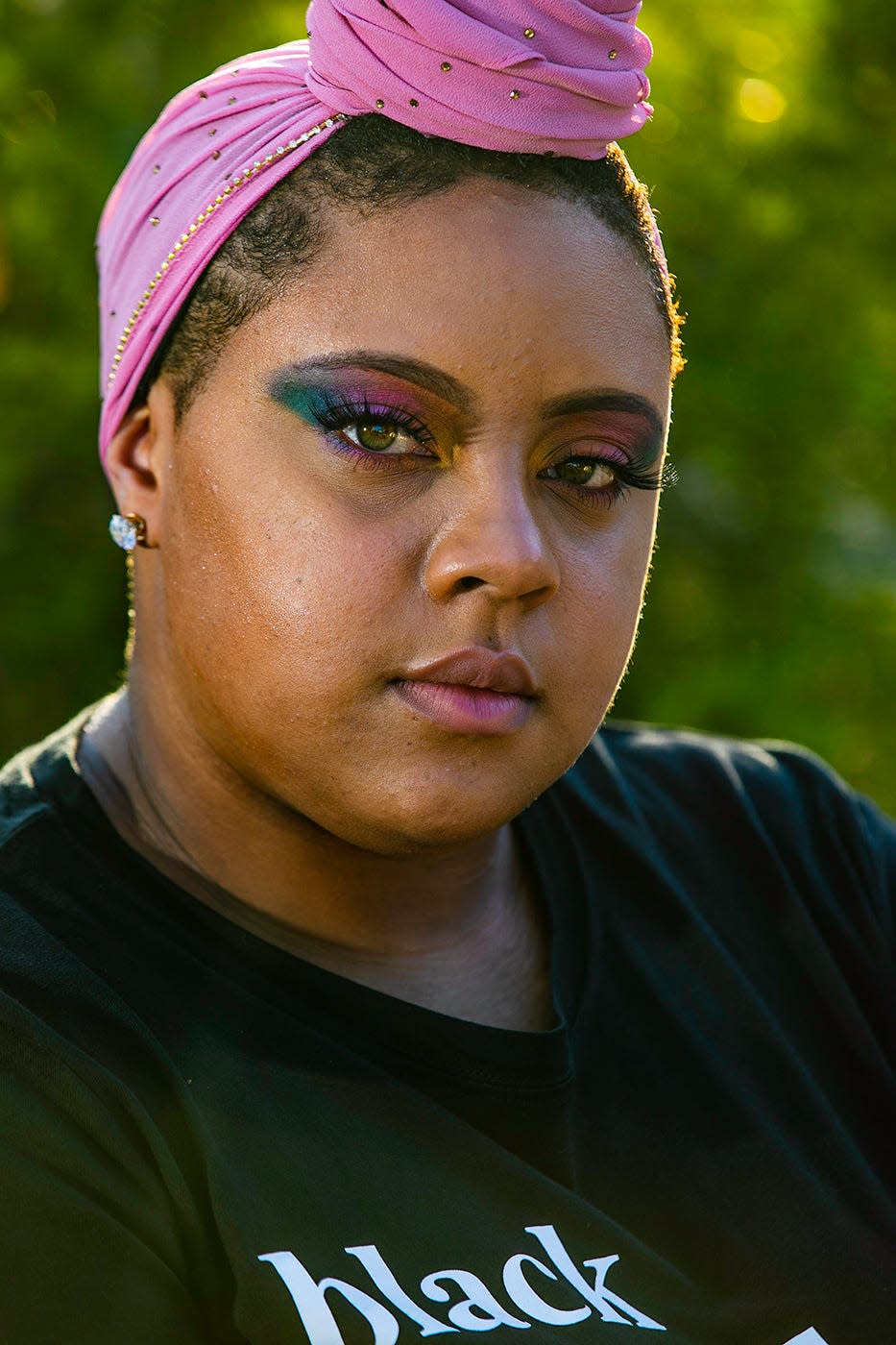‘Young Black Queen’ fights for change in policing in Brockton, Massachusetts

Seven days after George Floyd died in the custody of Minneapolis police, the Blackest city in New England was quiet.
As protests across the nation condemned racial discrimination in law enforcement, Brockton, a community of 100,000, had held just one demonstration. It was organized by the mayor and drew a small crowd.
Deja McCottrell wanted to change that.
Self-described as “Queen Deja, a young Black Queen fighting for change,” McCottrell took the reins to help organize a peaceful protest.
The 22-year-old retail worker soon found herself sitting across the table from Brockton’s mayor, police chief and city councilors, cluing the anxious officials into her plans for a peace rally in honor of Black lives.
In the end, an estimated crowd of more than 1,000 people attended. McCottrell said she’d never seen Brockton look so unified.
Speaking from the steps of the school where the protest took part, barely tall enough to look out over the crowd, McCottrell warned against oversimplifying complicated problems.
“It’s not just Black versus white,” she said. “It’s not just us versus the cops. It’s everyone versus racism.”
One of McCottrell’s favorite moments from that day is when police officers joined in chants of “I can’t breathe” and “say their names.”
But by nightfall, that harmony had given way to tension.
Some protesters marched to the police station on their own, meeting a barricade of officers equipped with riot gear. As officers ignored calls to kneel in solidarity, some protesters threw rocks and aimed fireworks over the barricade. McCottrell arrived late, and split for home at the sight of tear gas as police fought their way through the crowd.
The next morning, McCottrell organized a cleanup of more than 30 volunteers collecting discarded signs, shards of glass, empty gas canisters, and rubber bullets into trash bags.
“We’re going to go and clean up our city and show people that this is what Brockton is really about," she said.
Nearly two months later, McCottrell said Brockton is still picking up the pieces after nationwide clashes over the role police departments should play in communities of color.
McCottrell said she has a stake on both sides of the debate. Raised by a Black grandmother from Mississippi who served almost three decades as a Boston police detective, McCottrell said she wants no part in a movement that paints all cops as racists.
But McCottrell also knows what it’s like to fear for your life during a traffic stop. Pulled over recently by a state trooper late at night, McCottrell said she complied with the trooper’s orders to exit her car and answered questions, standing rooted to the spot until the cruiser disappeared.
“I felt like, yeah they’re saying that I’m free to go, but as soon as I turn my back I hear eight warning shots,” she said. “That’s my biggest fear.”
In Brockton, McCottrell sees a cultural divide between residents that are poorer and Blacker on average than the police who’ve sworn to protect them. A majority of the city's residents are non-white, compared to 36 per of police, and nearly half of cops live outside the city.
Revamped cultural sensitivity training is one of McCottrell’s top priorities for change. Another is redesigning what accountability looks like when officers are accused of excessive force.
McCottrell, who plans to enter a training program for medical assistants this fall, is considering a career as a trauma nurse for rape survivors.
She said she sees an array of opportunities for folding activism into a life of work and art.
“I’ve got nothing but time,” McCottrell said.
Leaders of Change
Overview: A mayor, a filmmaker, a Navajo Nation president: Our take on Leaders of Change
Social and Criminal Justice:We allow 'the most marginalized among us to be exploited'
Policing reform: 'There’s so much at stake, but we were built for this moment'
Politics: ‘We're holding our prosecuting offices responsible’
Economy: 'When people have the resources to help themselves, they are going to'
Education: 'Black girls were experiencing harm ... beyond the rate of the boys'
Children's rights: 'We must redress racial inequality for children'
Health care: 'Unnamed wound is what I have come to understand as racial trauma'
Environment: ‘No community should be saddled with more environmental burdens’
Religion: 'Neighbors who did not understand neighbor love'
This article originally appeared on The Enterprise: 'Young Black Queen': Fighting for change and unity in Brockton, Mass.

